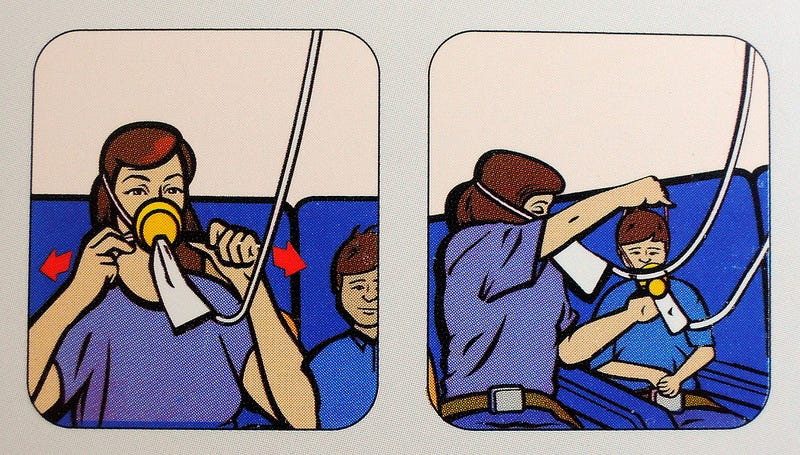Welcome to the first Last-Sunday-of-the-month issue of Walking Point with John Dailey.
This month we have been talking about time— Time as a construct, time as a finite resource, the wheel of the year, and next Thursday will close September out by talking about taking back time.
Today I want to talk about Jimmy Buffett, Julius Cesar, Pope Gregory XIII, and the concept of the Hedonic Treadmill.

If you are anything like me, the news of Jimmy Buffett's death on September 1st hit pretty hard. I’ve never been to a Jimmy Buffett concert, and wouldn’t consider myself a Parrot Head, but I did buy the 4 C.D. Boats, Beaches, Bars, and Ballads box set when it came out in 1992, and it has served as my road trip/travel playlist ever since.
While Jimmy was best known for his ‘drink in the hand & toes in the sand’ anthems like Margaritaville, Cheeseburger in Paradise, and Why Don’t We Get Drunk and Screw, I have always been drawn to his ballads.
I find myself becoming contemplative this time of year, and I’m not alone. In When the Coast is Clear, Jimmy sang,
They're closin' down the hangout
The air is turnin' cool
They're shuttin' off the "super slide"
The kids are back in school
The tourist traps are empty
Vacancy abounds
Almost like it used to be
Before the circus came to town
That's when it always happens
Same time every year
I come down to talk to me
When the coast is clear
In the song he welcomes, ‘Mr. Other Me’, a version of himself that he loses touch with during the busy summer months. They reminisce and look both backward and forward.
Although coastal N.C. hasn’t really turned cool yet. I can tell it’s coming. On a recent morning, sitting in my kayak on the White Oak River, I wished I had brought a jacket until my paddling eventually warmed me up. And, once or twice while on early morning rucks I have caught traces of woodsmoke in the air, and that smell always carries me effortlessly back to the West Virginia mountains of my youth. The brilliant leaves, apple butter, cross-country practices, and big blackened tubs full of mason jars of green beans resting on cinderblocks over a fire pit in communal canning sessions.
Fall will always be my favorite season, and I’m not alone. When surveyed, Autumn is the overwhelming choice throughout most of America. It is a time that some traditions call the gateway of the year when, following harvest, there is the opportunity to pause, reflect, and plan.
Last year I decided that rather than wait until January, I would begin my new year on September 1st.
Now, before you dismiss me as crazy, hear me out. First, I still abide by the Gregorian calendar established by Pope Gregory XIII in 1582. I just begin my new year in September which is not without precedent. The Ethiopians and Eritreans start their new year in September by celebrating "Enkutatash”, or Gift of Jewels as a celebration of renewal and hope.
And speaking of hope, (just kidding) the U.S. Government begins its new fiscal year each October.
Now before you start nitpicking that January has to be the first month of the year because it is named for Janus, the two-faced Roman God of beginnings, and endings, it’s important to note that in Colonial America we celebrated March 25th as the first day of the new year until 1752 when Great Britain and the colonies finally switched from the Julius Cesar’s Julian calendar to the Gregorian calendar.
An interesting fact I learned while researching for this post is that during the 20th century, there was a push to adopt a 13-month calendar that had great support in America until it was finally squashed by the League of Nations in 1937. According to Aguste Comte’s Positivist calendar, today would be Shakespeare 15th 235.
Our system of months is as dysfunctional as any method of measurement we have with the possible exception of our refusal as Americans to fully embrace the Metric Conversion Act of 1975. The months are named for four Roman Gods, two festivals, two Roman Emperors, and the Latin numbers for 7, 8, 9, & 10 to name the 9th, 10th, 11th, & 12th months respectively. If you’re interested you can read about them here.
So, I say all of that to say this. I really feel that we can choose to begin our year whenever we damn well please.
Unlike Aguste Comte, I retain the calendar months and numbering system, I just believe that September is my favorite time to do what Jimmy talks about in in Changes in Latitudes, Changes in Attitudes:
“I took off for a weekend last month just to try and recall the whole year. All of the faces and all of the places wonderin’ where they all disappeared.”
And while there is absolute value in looking backward, I find this time of year best for laying out a plan for the future, as Jimmy reminded us:
“Yesterday's over my shoulder, so I can't look back for too long
There's just too much to see waiting in front of me and I know that I just can't go wrong.
If you were reading my writing last December, you heard me rail against New Year's Resolutions.
First, I believe that the best time to make a change is when you think of it, not at some arbitrary future date. Second, if we wanted to choose the worst possible time to try to establish a new habit it would be hard to find a better date than January 1st.
We’re coming off a feast season that begins roughly on Labor Day and carries over into fun-sized Snickers season, then big turkey and stuffing time, and ends with Christmas cookies, charcuterie boards, and champagne on Dec 31st. By January 1st we are bloated, broke, depressed, and worn down—and oh-by-the-way Baby, it’s cold outside, and since we just passed the Winter Solstice, the sun barely shows its face.
If you are resolving to read more books you might stand a chance (and I am a fan of reading books) but the most commonly set and most frequently failed resolutions revolve around fitness and self-improvement goals.
So, last year I decided to modify a concept I took from the book Stealing Fire by Steven Kolter and Jamie Wheal. They advocate for the idea of Hedonic Calendaring.
If you are like me, the word hedonic probably has you thinking of hedonism and that may have you thinking of Hedonism II, the exclusive all-inclusive resort in Negril, Jamaica where anything goes. In this case, hedonic simply means something that brings pleasure.

So according to Stealing Fire, the idea of hedonic calendaring is to set aside time for yourself. This is the same advice you will get while flying on an airplane, put your oxygen mask on first before helping others, or from your money manager, pay yourself first. If we don’t take care of ourselves, our ability to take care of others is greatly diminished and eventually, we become bitter, angry people.
I recommend setting aside the following time to do something that you enjoy which also works towards your goals. Put this time on whatever calendar you use for scheduling and make it your priority:
1 Hour per day
4 hours per weekend
One day per month
One weekend per quarter
One week per year
If you are the parent of young children, or working to build a business, these times might seem impossibly excessive. Adjust them so that they work for you, but keep them sacrosanct. These also don’t have to be additive, perhaps your morning run or weekly yoga class is the time is the time you value. Keep it up.
The things we do should be weighed based on the equation Value = Time x Reward/Risk.
Going for a run every morning will provide value for low-risk (and low-cost), but it will not be a life-changing experience
A weeklong backpacking trip in the backcountry increases time, cost, and possibly risk, but the value is exponential when done annually.
However, if you tried to drive for hours to the mountains and hike every weekend it would start to lose its value because the cost — monetary, time, and stress might become too high, and the enjoyment derived would lessen.
This is the concept of the hedonic treadmill. If we get too much of a good thing we don’t actually increase our happiness, so by planning out the year we can balance the time we spend with the reward we need to be our most productive and happy.

I hope you will take some time to consider when you should start your self-improvement year, and balance the pursuit of pleasure with pursuit of meaning. I’d love to hear your thoughts.
My absolute favorite Jimmy Buffett song is, He Went to Paris. It is based on the story of Eddie Balchowsky, a Spanish Civil War veteran and one-armed pianist Jimmy met.
In the song, the protagonist goes to Paris, and then England as a young man searching for answers to life’s questions. After meeting a marrying a woman and having a child he is content to put the unanswered questions away, but when tragedy strikes during the war, he moves to the islands and writes his memoirs.
The part that always gets to me is the line at the end of the song where he says,
“Through 86 years of perpetual motion if he likes you he’ll smile and say, some of it’s magic, some of it’s tragic but I had a good life all of the way.”
At the end of the day, I think that is the goal.
If you aren’t familiar with it, have a listen:
In October we’ll be talking about the Hero’s Journey. Please join in and bring a friend.









Loved your breakdown of the Hedonic calendaring. I’ve been thinking of doing something like this but more focused on solitude for thinking/writing/reflection
JD, You make me laugh. Not by a little, but by a lot. Having just shared an 18 hour train ride with a fellow that had been to hedonism and spared not a second in telling me about all the detail, I literally spit out my drink in reading this from a hotel in continental Europe, when your pivot was Tracy's travel business. Perfect. Completely. On a side note, M-Ville played in my junior high shop class. (Wood and machine), and I still remember how it made me feel then, and of course, now.